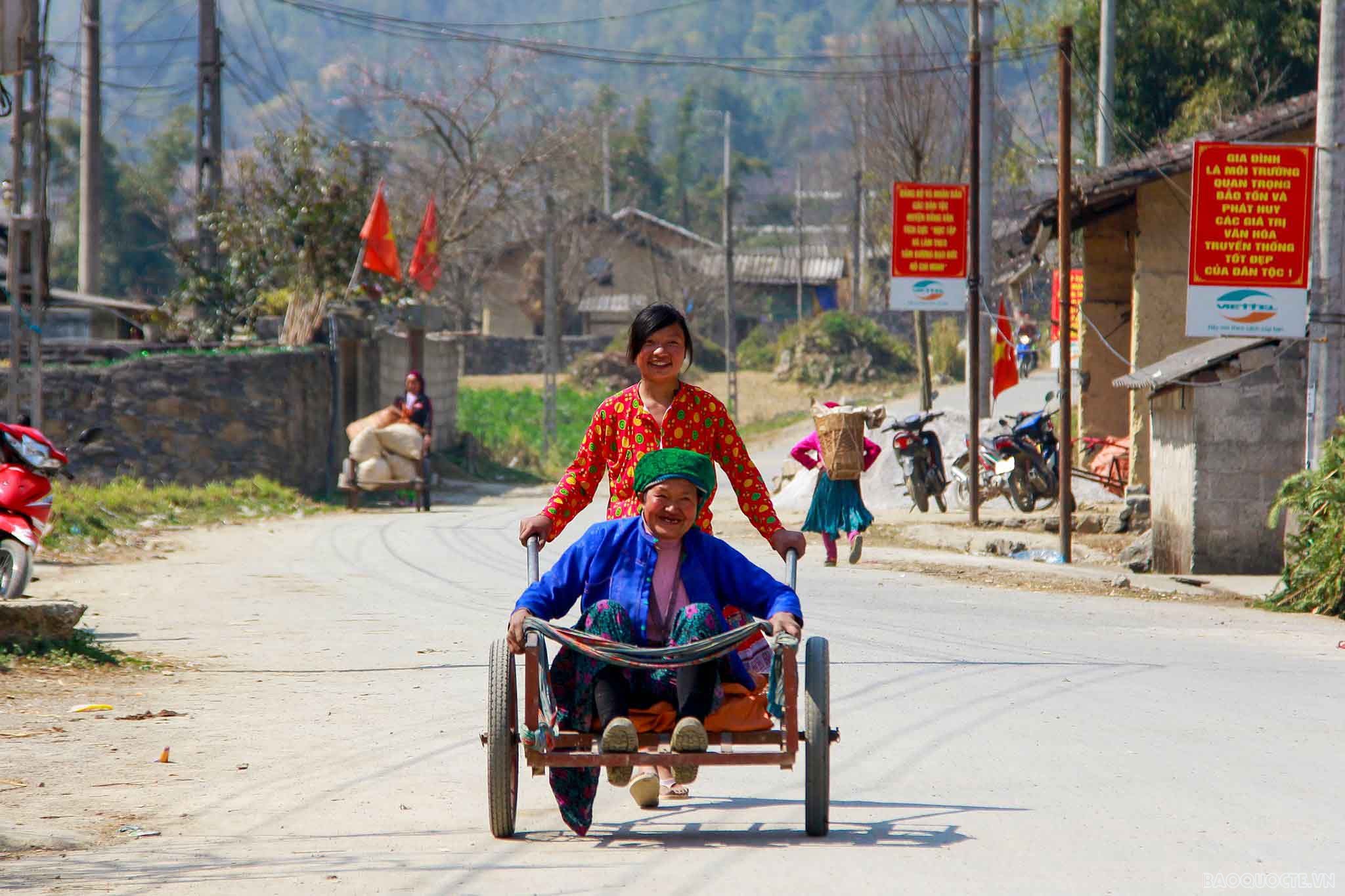 |
| President Ho Chi Minh paid great attention to protecting human rights for women, children and other vulnerable groups. (Photo: Nguyen Hong) |
Not only is it a great spiritual heritage, valuable in guiding the activities of the Party and State in building and perfecting the current socialist rule-of-law state of Vietnam, President Ho Chi Minh's thoughts on human rights also contribute to the common values of human rights of humanity.
Human rights are linked to national rights.
President Ho Chi Minh soon realized the close relationship between individual freedom and national independence. He understood that if a nation is enslaved, its people cannot have freedom and human rights. Therefore, his burning desire is first of all for national independence associated with socialism. The people's struggle for freedom and democracy must be associated with the struggle for national independence; in other words, national independence and national sovereignty are the most important conditions to ensure human rights. Therefore, he repeatedly affirmed: "Even if we have to burn down the Truong Son mountain range, we must resolutely gain independence"; "We would rather sacrifice everything than lose our country and become slaves" (1); "THERE IS NOTHING MORE PRECIOUS THAN INDEPENDENCE AND FREEDOM" (2) ...
The uniqueness in President Ho Chi Minh's approach to human rights is clearly shown in the immortal Declaration of Independence (1945), when citing the right to life, the right to liberty, the right to equality, the right to pursue happiness in the 1776 Declaration of Independence of the United States and the Declaration of the Rights of Man and of the Citizen of the French Revolution in 1791. From being a right attached to each individual, he raised it to the natural right of every nation - people, by extrapolating: "All peoples in the world are born equal; every people has the right to live, the right to be happy and the right to be free" (3).
In Ho Chi Minh's thought, national independence, national sovereignty and human rights are closely related to each other; to have human rights, one must gain national independence, but when gaining independence, nations must be responsible for ensuring a happy and prosperous life for all people within that nation's territory. President Ho Chi Minh pointed out, "If the country is independent but the people do not enjoy happiness and freedom, then independence is meaningless" (4). He emphasized: "People only know the value of freedom and independence when they have enough to eat and wear" (5). Thus, national independence is a means to achieve the ultimate goal of freedom and happiness for everyone, every family.
Human rights must be institutionalized by the Constitution and laws.
President Ho Chi Minh always emphasized the protection of the people's democratic freedoms. As early as 1919, in the Petition of the Annamese People , he requested: "Reform the legal system in Indochina by giving the natives the same legal guarantees as the Europeans...; Freedom of the press and freedom of speech...; Freedom of study, establishment of technical and professional schools in all provinces for the natives..." (6).
To ensure freedom and democracy for the people, right after the country gained independence in 1945, President Ho Chi Minh developed a plan and implemented a series of tasks, such as organizing a national general election, establishing a Government and promulgating the Constitution.
The first Constitution of Vietnam - drafted by President Ho Chi Minh as Head of the Drafting Committee, with the participation of famous revolutionaries and intellectuals, discussed carefully by the National Assembly and approved with the majority of approval - not only demonstrated collective intelligence, but also the consensus and solidarity of all classes of people in building a new society in Vietnam.
In the 1946 Constitution, the Chapter “Citizens’ Obligations and Rights” is in second place, which demonstrates the State’s appreciation and respect for the people’s legitimate rights and interests. The content of the Chapter “Citizens’ Obligations and Rights” includes: regarding obligations, Vietnamese citizens have the obligations to protect the Fatherland, respect the Constitution, obey the law and the obligation to join the army; regarding rights, for the first time in the history of the Constitution, it recognized the equality of Vietnamese citizens in all political, economic and cultural aspects, and affirmed that all citizens can participate in the government and the country’s construction. In addition, the 1946 Constitution also stipulates that “women are equal to men in all aspects”. These provisions of the 1946 Constitution opened up a broad social basis for people to participate in building the government and carrying out the country's affairs, and at the same time demonstrated progressive thinking in ensuring citizens' equal rights.
Building a government of the people, by the people, for the people
In his work , Changing the Way of Working (1947), President Ho Chi Minh left important instructions for the Party, Party organizations and each cadre and Party member on the responsibility for respecting, protecting and ensuring human rights for the people. He emphasized: “If the people are hungry, the Party and the Government are at fault; if the people are cold, the Party and the Government are at fault; if the people are ignorant, the Party and the Government are at fault; if the people are sick, the Party and the Government are at fault” (7). Therefore, the task of the Party and the Government is to:
“1. Make people have food
2. Make people have clothes
3. Provide housing for people
4. Make people educated” (8)
President Ho Chi Minh emphasized: “We must understand that the Government agencies from the whole country to the villages are all servants of the people, that is, to shoulder the common work for the people, not to oppress the people as in the period under the domination of France and Japan” (9); “The people have the right to urge and criticize the Government. The Government, big and small, all aim to serve the interests of the people” (10). According to him, the nature of democracy is: The people are the “masters”, and the Government is the “servants” of the people. He especially valued a government of the people, by the people, for the people.
This is the core content of Ho Chi Minh's thought on the role and responsibility of the Party and State in respecting, ensuring and protecting human rights; at the same time, it demonstrates his theoretical creativity, which no thinker or politician had previously mentioned in such a profound way. Today, respecting, protecting and promoting human rights is still Vietnam's consistent policy. Vietnam always considers people as the center and driving force of the innovation process and national development and always strives for the goal of improving people's lives and enjoyment rights.
Special attention to protecting human rights for vulnerable groups
During the struggle for national liberation, President Ho Chi Minh wrote many articles on the practice of building a new society, including achievements in protecting human rights for women, children and other vulnerable groups.
President Ho Chi Minh always shared the disadvantages that women had to endure and persistently raised social awareness about pushing back the attitude of contempt and oppression of women, encouraging society to exercise equal rights, both in war and in peacetime. According to him, “We make revolution to fight for equality, men and women have equal rights” (11).
Realizing that children are the future of the country and the future of the nation, President Ho Chi Minh often cared about children, both in terms of material and spiritual life. He said: "Only when the sprouts are green will the tree be strong, only when the buds are green will the leaves be fresh and the fruit will be good, only when children are properly nurtured and educated will the nation be self-reliant and independent". He also often reminded and assigned the task of protecting and caring for children to sectors and organizations. For people with disabilities, he also reminded, "disabled but not useless"; everyone is cared for and given the opportunity to participate in suitable jobs.
It can be seen that the content of Ho Chi Minh's ideology on human rights is a unified, dialectical system, covering many areas of social life. Ho Chi Minh's ideology on human rights is extremely rich and diverse, a great spiritual heritage, a valuable "compass" in formulating the Party's guidelines and policies, and the State's policies and laws.
(1) Ho Chi Minh: Complete Works, National Political Publishing House Truth, Hanoi, 2011, vol. 4, p. 534
(2) Ho Chi Minh: Complete Works, op. cit., vol. 15, p. 130
(3), (4), (5), (8) Ho Chi Minh: Complete Works, op. cit., vol. 4, pp. 1, 64, 175, 175
(6) Ho Chi Minh: Complete Works, op. cit., vol. 1, p. 441
(7), (10) Ho Chi Minh: Complete Works, op. cit., vol. 9, pp. 90, 518
(9) Ho Chi Minh: Complete Works, op. cit., vol. 4, pp. 64-65
(11) Ho Chi Minh: Complete Works, op. cit., vol. 15, p. 260
Source



![[Photo] T&T 1 and Ho Chi Minh City 1 People's Police Teams won the men's and women's team championships](https://vphoto.vietnam.vn/thumb/1200x675/vietnam/resource/IMAGE/2025/5/22/39db06ae67cb4001b7a556e8d9a56d07)

![[Photo] Press delegation meeting to visit Truong Sa and DK1 Platform](https://vphoto.vietnam.vn/thumb/1200x675/vietnam/resource/IMAGE/2025/5/22/6b8d232877ec421a9e8187d83b9f8006)
![[Photo] Prime Minister Pham Minh Chinh chairs meeting on draft Resolution of National Assembly on International Financial Center in Vietnam](https://vphoto.vietnam.vn/thumb/1200x675/vietnam/resource/IMAGE/2025/5/22/d398664ff1a140629169ea5a24e1b4d0)
![[Photo] General Secretary To Lam chairs a working session with the Central Internal Affairs Commission](https://vphoto.vietnam.vn/thumb/1200x675/vietnam/resource/IMAGE/2025/5/22/3b7790f499da45b2803d8ae253207ef1)





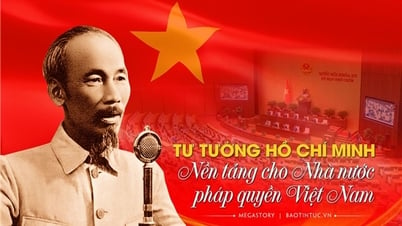

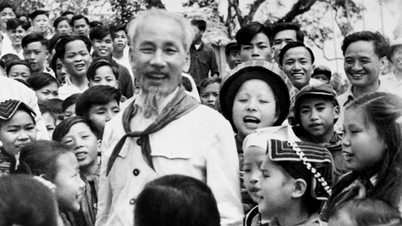

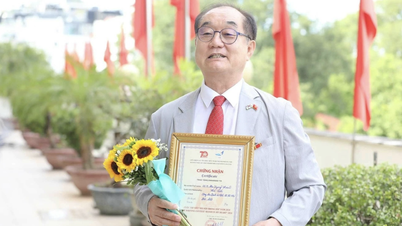
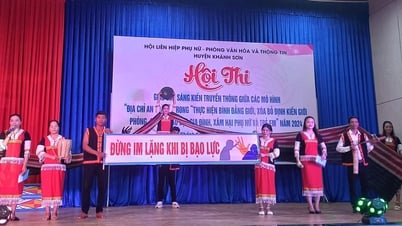



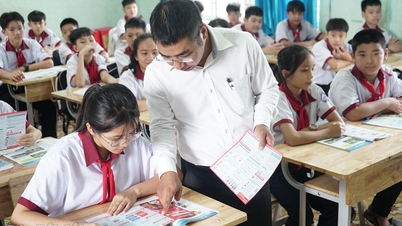








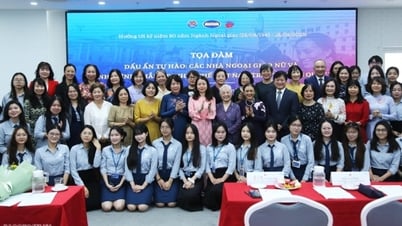
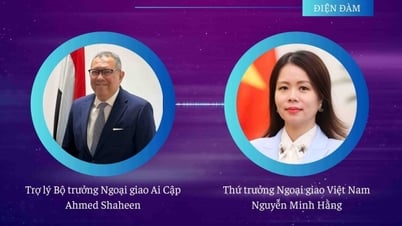
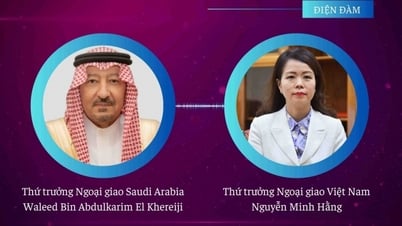
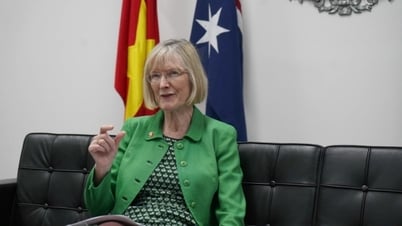
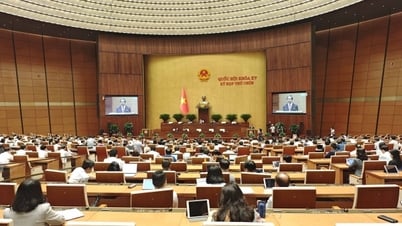
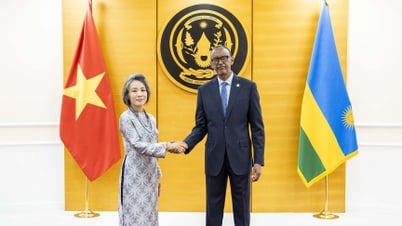
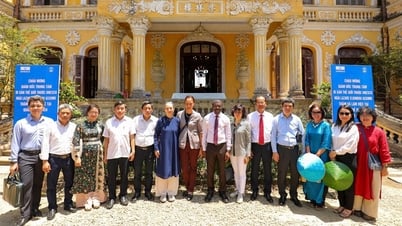




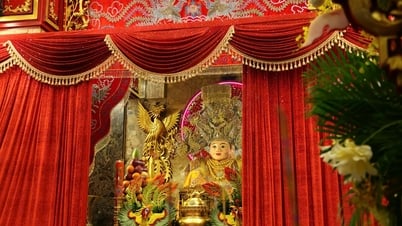

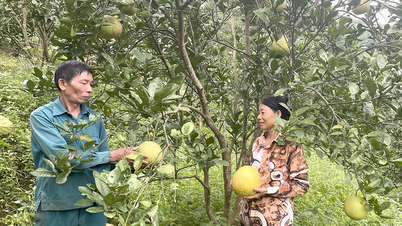

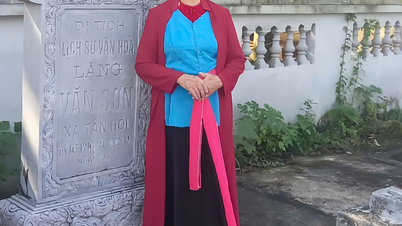










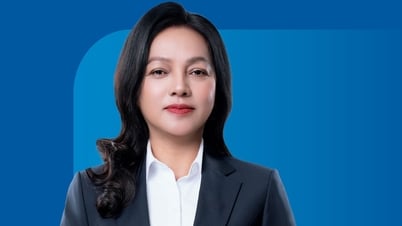

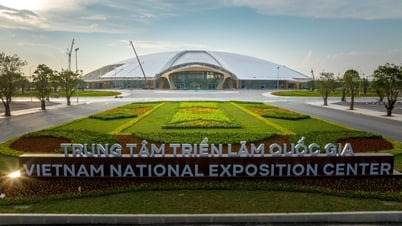

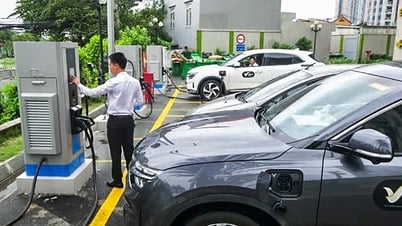
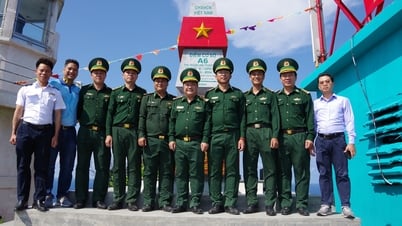
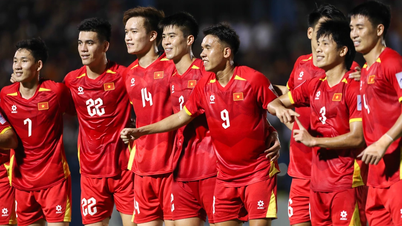

![[Infographic] Investment project to build Tu Lien bridge and roads at both ends of the bridge](https://vphoto.vietnam.vn/thumb/402x226/vietnam/resource/IMAGE/2025/5/23/3c167ece69cb4aecb3e55de5ebc38b88)
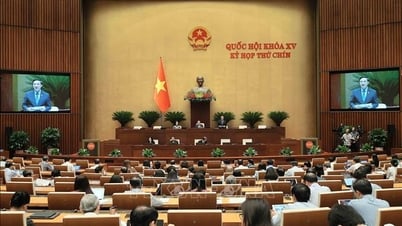
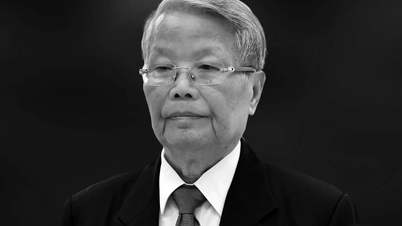
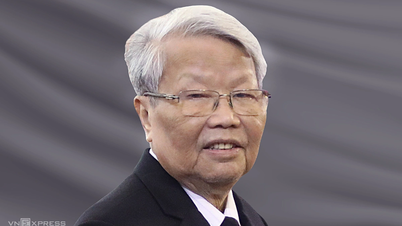

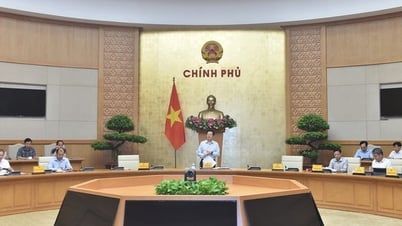

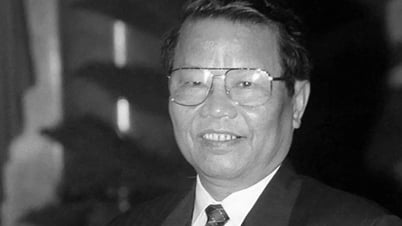
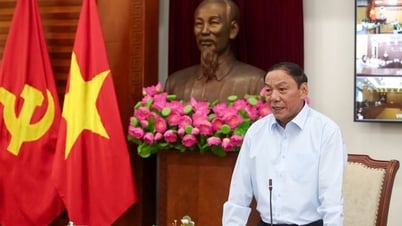
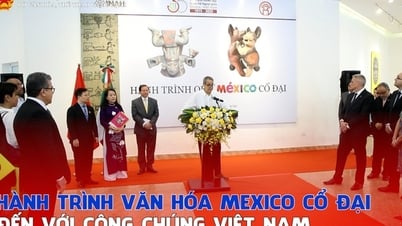
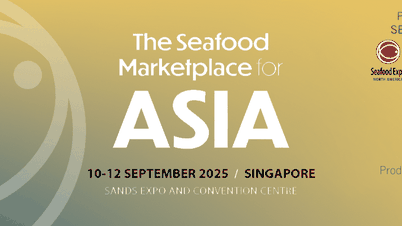

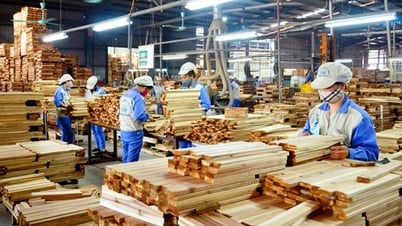


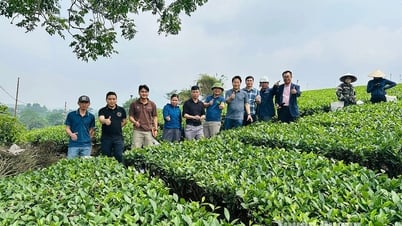

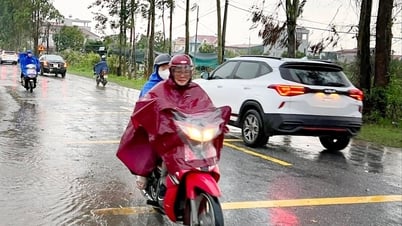

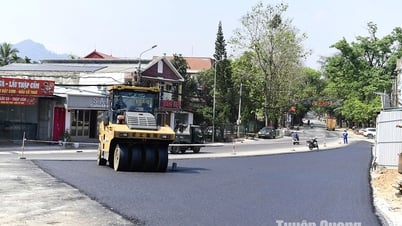
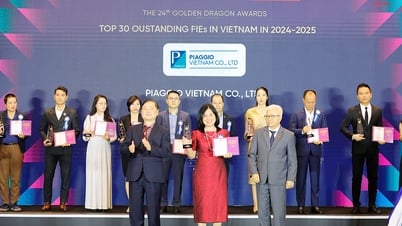






![[Podcast] Week introducing more than 500 OCOP products in Hanoi](https://vphoto.vietnam.vn/thumb/402x226/vietnam/resource/IMAGE/2025/5/22/d144aac2416744718388dbae3260e7fd)





Comment (0)